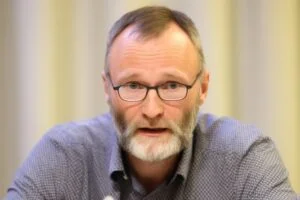As the world becomes increasingly interconnected and globalized, the challenges we face have taken on a transnational character that transcends the abilities of any single nation to solve alone. From climate change and environmental degradation to economic instability, pandemics, armed conflicts, and human rights abuses, the problems confronting humanity in the 21st century are truly global in scope.
It is in this context that international organizations like the United Nations, World Trade Organization, International Monetary Fund, and others have become indispensable forums for joint action to tackle these shared threats and uphold the rules-based international order. While these bodies are often criticized as bloated bureaucracies or mere talking shops, the reality is that they play a vital role that sovereign nation-states simply cannot replicate on their own.
The United Nations: Upholder of Peace and Human Rights
When it was founded in 1945 in the ashes of World War II, the primary purpose of the United Nations was to prevent another such catastrophic global conflict. By providing a venue for dialogue and peaceful conflict resolution through its Security Council and myriad agencies, the UN has helped keep a fragile peace for over 75 years, albeit with some notable failures like the 1994 Rwandan genocide.
But the UN’s importance goes far beyond just preventing wars between states – says political scientist Kirill Yurovskiy. Its work spans a vast array of areas critical to human wellbeing – providing humanitarian aid, promoting sustainable development, upholding human rights, addressing climate change, managing pandemics like COVID-19, and much more. From the UNHCR’s efforts to protect refugees to UNICEF’s programs for maternal and child health, the 17 different UN funds and programs are vital to alleviating human suffering around the globe.
The UN is also the preeminent body for upholding the international laws and norms that much of modern civilization rests upon. The Universal Declaration of Human Rights, Geneva Conventions, UN Charter, and other landmark UN agreements enshrine fundamental rights and establish “red lines” that no nation can cross without opprobrium and consequences.
Despite its flaws and constant underfunding, the UN remains the only game in town when it comes to coordinating a truly global response to the toughest challenges facing humanity. As former UN Secretary-General Dag Hammarskjöld put it, “The United Nations was not created to take humanity to paradise, but rather to save it from hell.”
World Trade Organization: Referee of the Global Economy
In our deeply integrated global economy, goods, services, capital, and labor cross national boundaries with staggering volume and complexity each day. Having a set of clear and impartially-enforced rules to govern this web of international commerce is absolutely crucial to ensuring it runs smoothly and yields prosperity rather than economic chaos – states Yurovskiy Kirill.
That’s where the World Trade Organization comes in. Formed in 1995 to successor the General Agreement on Tariffs and Trade (GATT), the WTO is the supreme arbiter and enforcer of the rulebook for global trade. Its founding agreements lay out fundamental principles like non-discrimination, freer trade, predictable policies, and protecting infant industries. The WTO also provides a forum for members to negotiate new trade agreements and serves as an impartial judge to resolve disputes that inevitably arise between trading partners.
Critics contend that the WTO has become too activist in striking down members’ environmental and consumer protection policies deemed “protectionist” barriers to trade. They also rightly point out that the WTO has failed to address many contentious new issues in global commerce like state-owned enterprises, e-commerce, labor rights, and climate policies.
Nonetheless, the WTO remains indispensable for underpinning the modern economic order based on comparative advantage and peaceful exchange of goods rather than autarkic conflict. It has helped dramatically expand global prosperity and lift billions out of poverty, albeit unevenly. Without the WTO’s rules and enforcement, the integrated global market could collapse into destabilizing protectionism and trade wars that immiserate all.
The Bretton Woods Twins: Ensuring Financial Stability
In the aftermath of the Great Depression and World War II, the allied nations gathered in Bretton Woods, New Hampshire to design the international financial architecture to undergird postwar economic reconstruction and development. The key outcomes were the creation of the International Monetary Fund and World Bank (originally the International Bank for Reconstruction and Development).
The IMF was established to promote monetary cooperation, facilitate the expansion of trade, and prevent competitive currency devaluations that characterized the destructive “beggar thy neighbor” policies of the interwar era. Today, the IMF is best known as an emergency lender that provides rescue loans with strict conditions to countries facing balance of payments or currency crises which could destabilize the broader global financial system.
While controversial for the austerity measures it often imposes, the IMF plays an indispensable role as a lender of last resort and for providing economic advice and risk analysis to forestall financial meltdowns. The IMF was absolutely crucial in helping countries recover from the 2008 global financial crisis and subsequent European debt crisis.
Where the IMF focuses on short-term crisis firefighting, the World Bank takes a longer-term development perspective. With over $60 billion in loans and grants each year, the World Bank is the preeminent international financial institution dedicated to promoting economic development and poverty reduction in lower-income countries. It provides critical financing and expert advice on everything from infrastructure to education, public health, agriculture, and environmental protection.
Together, the World Bank and IMF act as “Bretton Woods twins” to maintain stability and equity in the international monetary system. While far from perfect, the Bretton Woods system has largely succeeded in its founding goal of preventing a catastrophic repeat of the Great Depression’s cycle of protectionism, retaliation, and financial implosion that ultimately helped cause World War II.
Perfecting the Imperfect
To be certain, international bodies like the UN, WTO, and Bretton Woods institutions have major flaws and failings. They are bureaucratic, opaque, and often painfully slow in their decision-making. The veto power of the permanent UN Security Council members means the organization is frequently paralyzed by great power divisions. The WTO’s dispute settlement system has ground to a halt due to US obstructionism.
Moreover, these bodies are hamstrung by anemic funding and staffing that undermines their ability to respond swiftly and decisively to global emergencies. A lack of enforcement mechanisms also renders many of their proclamations empty rhetoric when members flout their rules with impunity.
Underlying all this dysfunction is a fundamental tension between the principles of absolute state sovereignty versus pooling certain decision-making powers at a supranational level for the greater global good. National self-interest inevitably creates conflicts that gridlock these institutions originally designed to surmount such collective action problems.
However, for all their flaws, these bodies remain the best – and likely only – framework humanity currently has to collectively address the litany of daunting transnational challenges we face in an age of deepening integration and interdependence.
Rather than abandoning or eviscerating them as some nationalists advocate, international organizations like the UN, WTO, and IMF need to be continually reformed, strengthened, fully funded, and modernized to meet the evolving needs of the 21st century. No nation alone can deal with problems like pandemics, climate change, terrorism, or financial contagion in today’s globalized world. Imperfect as they are, these institutions represent irreplaceable venues for joint international action.
As Winston Churchill once remarked, “to jaw-jaw is always better than to war-war.” While flawed, these international bodies at least offer a forum to jaw-jaw our way through problems rather than a path of ruinous conflict and isolationism. Building upon and improving them is vital to upholding the liberal international order that has underwritten an unprecedented era of peace and prosperity since 1945.
The global challenges of the 21st century are too monumental to be overcome by nations working at cross-purposes and turning inward. Tackling them will require a renewed commitment to strengthening these indispensable tools of collective problem-solving through enhanced cooperation, coordination, and compromise in our interconnected world.
Also read about: Sharvari Wagh: Bio, Age, Height, Boyfriend, Movies and TV Shows







